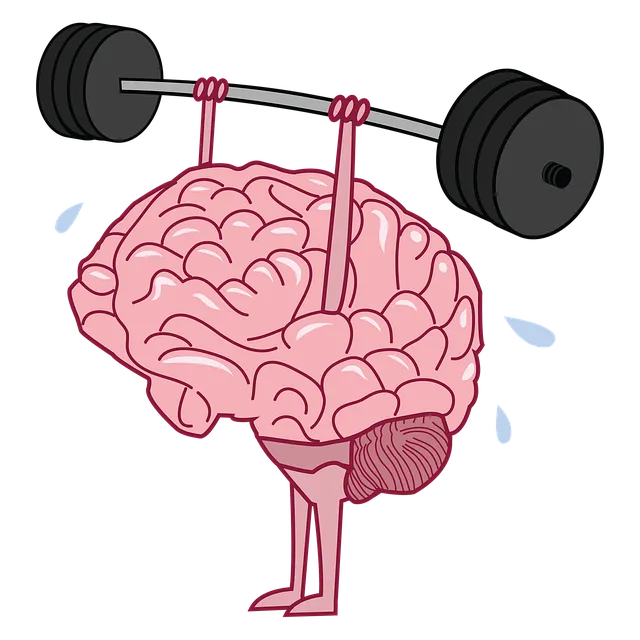In today's digital age, mental wellness apps are revolutionizing access to support in communities like Lakewood, where traditional healthcare services may be limited. These apps address prevalent issues such as stress, anxiety, and depression by offering personalized tools, mood tracking, mindfulness exercises, and virtual therapy sessions with licensed professionals. Following successful models like Lakewood and Kaiser, developers prioritize user needs during creation, ensuring intuitive design and engaging content while maintaining robust privacy, security, and ethical standards to provide effective mental health help.
In today’s fast-paced world, mental wellness is a paramount concern, driving the surge in demand for accessible mental health solutions. This article explores the development of mental wellness apps, a burgeoning field aimed at providing support and resources for those seeking help. We delve into the critical need behind these applications, highlighting key features that make them effective tools. Success stories from Lakewood and Kaiser showcase how innovative design can revolutionize mental health access. Furthermore, we discuss essential considerations for privacy, security, and ethics in app development to ensure user trust.
- Understanding the Growing Need for Mental Wellness Apps
- Key Features and Functionality of Effective Mental Health Apps
- Developing an App: From Concept to Launch with Success Stories (including Lakewood and Kaiser)
- Ensuring Privacy, Security, and Ethical Considerations in Mental Wellness App Development
Understanding the Growing Need for Mental Wellness Apps

In today’s fast-paced world, mental wellness has emerged as a critical aspect of overall health, with an increasing awareness and acceptance of its importance. The need for accessible mental health support is more evident than ever, especially in communities like Lakewood where stress, anxiety, and depression are prevalent issues. According to Kaiser, the demand for digital solutions, such as mental wellness apps, has surged, reflecting a growing desire for convenient, private, and effective ways to manage emotional well-being.
This shift is not just a trend; it’s a necessary evolution in how we approach mental health care. Traditional support systems often present barriers like long wait times, geographical constraints, or the stigma associated with seeking help. Mental wellness apps offer a promising alternative by providing on-demand resources and tools for self-care, including Emotional Regulation techniques, Mental Wellness Journaling Exercises, and Empathy Building Strategies. These innovations have the potential to reach a wide audience and make professional-level guidance more accessible, especially in areas where mental health services are limited.
Key Features and Functionality of Effective Mental Health Apps

Effective mental health apps are designed with a keen understanding of users’ needs and the latest psychological research in mind. Key features include personalized mood tracking, allowing individuals to monitor their emotional states over time and identify triggers. Integrated tools for mindfulness exercises, such as meditation and breathing techniques, help promote relaxation and stress reduction. Furthermore, these apps often facilitate virtual therapy sessions with licensed professionals, making quality mental health care more accessible, especially in areas like Lakewood where Kaiser may not have a significant physical presence.
Beyond basic support, top-tier mental wellness apps incorporate features tailored to specific conditions, such as anxiety management or depression tracking. They also emphasize the importance of community by enabling users to connect with peers facing similar challenges, fostering a sense of belonging and reducing the stigma associated with mental illness. Additionally, some platforms offer personalized recommendations for positive thinking exercises and mental wellness coaching programs developed by experts, ensuring users receive tailored interventions to support their journey towards better mental health.
Developing an App: From Concept to Launch with Success Stories (including Lakewood and Kaiser)

The journey of developing a mental wellness app begins with a clear vision and a deep understanding of user needs. Successful apps like Lakewood and Kaiser have pioneered this space by offering accessible, personalized solutions for mental health support. During the conceptual phase, identifying specific features is key—from mood tracking to guided meditations, each element contributes to fostering resilience and self-awareness exercises.
As development progresses, these platforms prioritize user experience, ensuring intuitive navigation and engaging content. Integrating self-care practices into the app’s core functions encourages users to take proactive steps towards their well-being. The journey from concept to launch involves rigorous testing, feedback integration, and continuous improvement based on user interactions. This iterative process not only enhances the app’s effectiveness but also ensures it remains a valuable tool for those seeking mental health resources, akin to how Lakewood and Kaiser have successfully empowered users to take control of their mental wellness.
Ensuring Privacy, Security, and Ethical Considerations in Mental Wellness App Development

In the digital age, mental wellness apps have emerged as a prominent resource for individuals seeking support, particularly when accessing help outside traditional healthcare settings, such as Lakewood or Kaiser. However, with this increased accessibility comes heightened responsibilities regarding user privacy, security, and ethical considerations. Developers must ensure that sensitive personal data is protected against unauthorized access or breaches. This involves implementing robust encryption methods, secure data storage practices, and adhering to stringent privacy regulations like HIPAA (Health Insurance Portability and Accountability Act).
Moreover, mental wellness apps should foster an environment of trust and transparency. Ethical guidelines should be established to govern how user data is collected, stored, and utilized, especially when integrating features like mindfulness meditation or stress management workshops. Developers must inform users about data collection practices, provide options for data deletion, and ensure informed consent. By prioritizing these considerations, mental wellness apps can become powerful tools, offering effective mental health help while maintaining the highest standards of privacy, security, and ethical conduct.
The development of mental wellness apps, as evidenced by successful examples like Lakewood and Kaiser, is a game-changer in accessing mental health support. By integrating key features that cater to diverse user needs, these apps offer convenient, personalized, and secure avenues for individuals to take charge of their mental well-being. As the demand for digital mental health solutions continues to rise, developers must prioritize privacy, security, and ethical considerations to foster trust and ensure effective delivery of care, ultimately helping more people find the mental health help they need, just like Lakewood and Kaiser have done.



